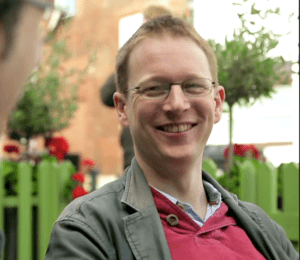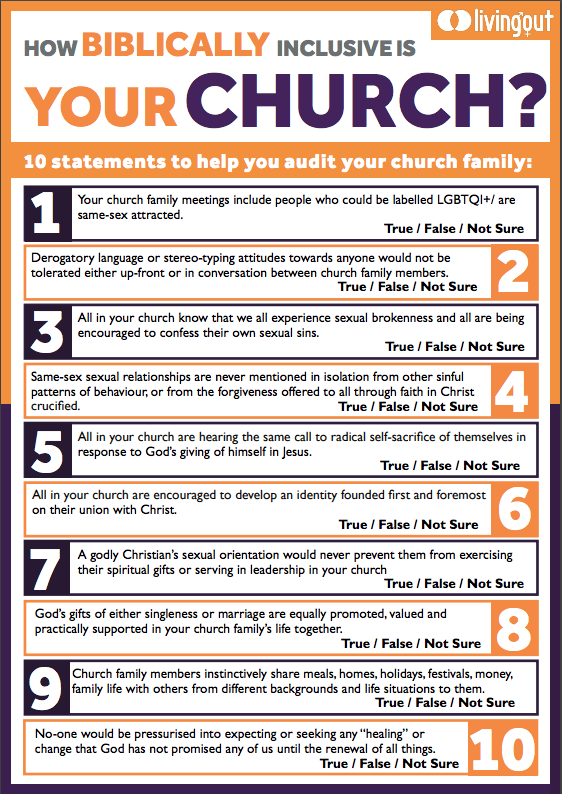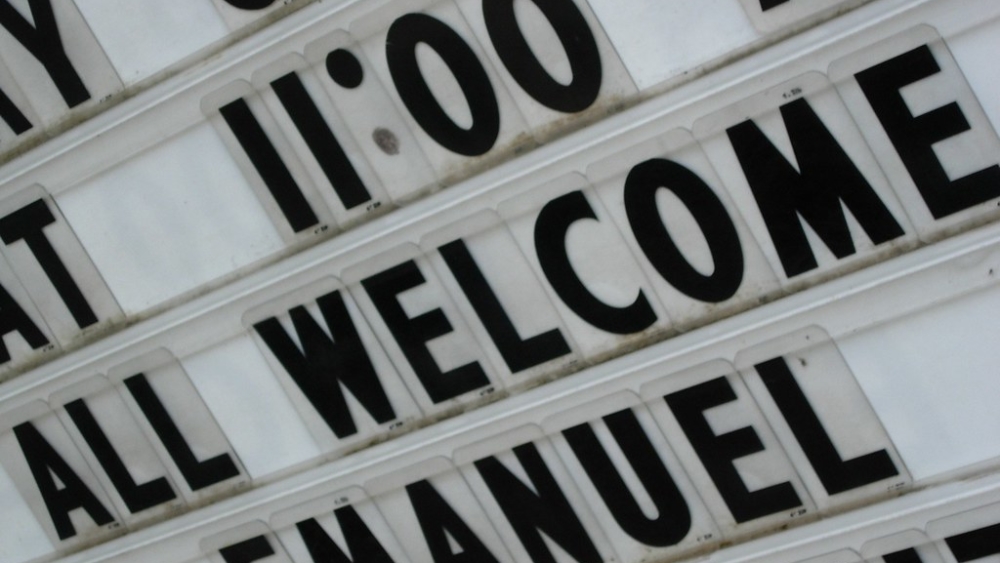Being inclusive is like the New Year’s Resolution that everyone wants to make but we don’t actually know how we will keep it.
Inclusion means and looks different, depending upon who is calling for it or providing it, let alone what sphere of life it is anchored within. Agreeing on what to include can be as tough to pin down as whether it’s OK to exclude.

Ed Shaw wants churches to think about inclusivity.
Christian churches are one arena where issues of inclusion have heated up during recent years. Pause briefly and you will recall how sexuality, particularly, has been a battleground of inclusion (or the apparent opposite).
Ed Shaw is an English minister who wants all churches to be biblically inclusive. As part of Living Out ministry – a support network and advocacy group for same-sex attracted people – Shaw co-created a Church Audit of ten questions for local churches to assess their inclusiveness.
But how is a biblically inclusive church different to an inclusive church? If I’m attending a church that is open, welcoming and fights against discrimination, isn’t that what it’s all about?
A celibate same-sex attracted man who leads Emmanuel City Centre in Bristol, Shaw is visiting Australia this month to introduce churches to the audit. He is also speaking at other events organised by Liberty Ministry, an Australian group “equipping churches and providing pastoral support in the area of same-sex attraction”.
“Jesus is the person who helps me to get this,” says Shaw about defining what biblical inclusion is.
“Jesus is inclusive of everybody. He was spending time with people on the ‘outside’, with minority groups. People that other people thought he should not spend time with.
“You see Jesus including everybody – women, children, foreigners, the disabled, the diseased, people from different socio-economic backgrounds …
“[But] what he also does is include everybody in the call to repent. He challenges everybody about lifestyle choices they made. He calls everybody to pick up their cross and follow him.
“It’s like Jesus welcomes all but also Jesus challenges all.”
Informed by other biblical teaching and principles, the Church Audit wants church leadership and members to ask hard questions about how they define “inclusion”.
“I think that sometimes when the ‘inclusion’ language is used, it’s a welcome to everybody but it’s not a challenge to everybody,” says Shaw.
“It’s sort of ‘half of Jesus’.
“It’s Jesus’ love and welcome for everybody, but it’s not Jesus’ ‘challenge to change’ for everybody.”

The ‘Church Audit’ is heavily informed by Living Out’s ministry focus of helping Christians to be “biblically inclusive of LGBTQ+ people”. But such focus raises the issue of this inclusive audit possibly not being concerned about the inclusion of any other group experiencing discrimination.
Doesn’t this inclusion diagnostic run the risk of excluding?
“We want the church to be inclusive of all,” says Shaw.
“We wouldn’t want to say ‘Once you have done this [Audit], you will be inclusive of all people.’ [But] you probably will find yourself to be more inclusive of more people. Some of the principles here would include others.”
Unveiled last year, the Audit has rolled out to some English churches and already has been refined for greater clarity. “There was one [part] that talked about derogatory language and stereotypes up front,” explains Shaw. “We were calling them out for LGBTQ+ people but we thought, actually, we should be calling them out towards any group.”
What about beyond church walls? The Audit’s name and thrust of questioning are anchored in what happens during a weekly Christian gathering. Does that mean this inclusion tool excludes what goes on outside the church? Is what a Christian does at home, at work, or anywhere else, excluded from the Audit?
“If local churches passed the Audit, I think that would have a massive impact on our witness to a wider world – because people would be able to see that we love and care for LGBT people,” says Shaw.
“Even though we might be saying, rightly, that gay sex is wrong, we clearly are not doing that out of irrational fear and hatred of them but out of love and care for them. And our actions prove that.
“I’m hoping that church leadership teams will do the Audit of their church family life, and they will be thinking about church meetings, small groups [Bible studies], the youth group – all those expressions of normal local church life in any given week.”
*Ben McEachen is a member of Village Church, Annandale, where Ed Shaw will be speaking. Dominic Steele is pastor of Village Church and chair of Liberty Ministry.

